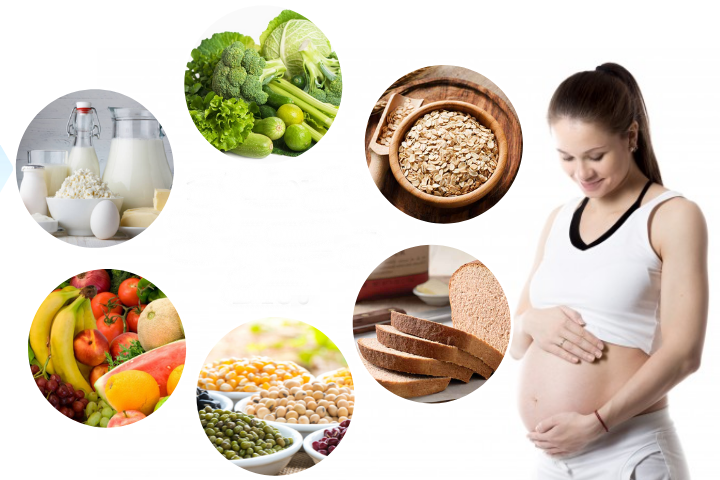Your baby deserves the best. You can add slices of fruit to your fortified breakfast cereal, chickpeas to your salads, and nibble on almonds. Do you know which foods are best avoided during pregnancy? Here’s help understanding pregnancy nutrition basics.
Avoid mercury-rich seafood
Seafood is a good source of protein. Omega-3 fatty acids found in many fish can help your baby’s brain, eye and vision development. Some shellfish and fish can contain dangerous amounts of mercury. Too much mercury can cause damage to your baby’s nervous system.
Mercury is more common in older fish that are larger and heavier. The Food and Drug Administration (FDA), encourages pregnant women to avoid:
- Bigeye tuna
- King mackerel
- Marlin
- Orange rough
- Swordfish
- Shark
- Tilefish
What is safe? Some seafoods contain very little mercury. The 2020-2025 Dietary guidelines for Americans recommends eight to twelve ounces (224-336 grams) of seafood per week during pregnancy. Consider:
- Anchovies
- Catfish
- Cod
- Herring
- Cannellini light canned tuna
- Oysters from the Pacific
- Pollock
- Salmon
- Sardines
- Shad
- Shrimp
- Tilapia
- Trout
White (albacore tuna) should be limited to 6 ounces (168g) per week
Avoid undercooked, raw or contaminated seafood
To avoid the spread of harmful bacteria and viruses in seafood
- Avoid raw seafood and shellfish.
- Do not refrigerate uncooked seafood. Some examples include seafood marked nova, lox or kippered. Smoked seafood can be eaten if it is part of a casserole or another cooked dish. Safe options include canned and shelf-stable varieties.
- Be aware of local fish advisory. Pay attention to fish advisories in your area. Take note of water pollution warnings. Do not eat any fish from the same area if you are unsure about its safety.
- Properly cook seafood. Heat fish to 145 F (63 C) When the fish is opaque and separates into flakes, it’s done. Cook the shrimp, lobster, and scallops until they are milky white. Cook the oysters, mussels, and clams until they open. Any that do not open, discard them.
Avoid undercooked meats, poultry, and eggs
You are at greater risk for bacterial food poisoning during pregnancy. You might experience more severe reactions than if your pregnancy was not. Rarely, food poisoning can also affect the baby.
To prevent foodborne illness:
- Cook all meats and poultry thoroughly before you eat them. Check the meat temperature with a meat thermometer.
- Steam hot luncheon and hot dogs until they are steaming hot. Or, you can avoid them entirely.
- Do not refrigerate pates or meat spreads. Can- and shelf-stable versions are acceptable.
- Cook eggs till the yolks and whites have set. Eggs can also be contaminated by harmful bacteria. Avoid eating raw eggs or parts of them, including eggnog, egg batter, freshly made or homemade Hollandaise sauce and Caesar salad dressing.
Avoid eating unpasteurized food
Low-fat dairy products, such as cottage cheese, skim milk and mozzarella cheese can all be healthy. Unpasteurized milk is prohibited. These products can cause foodborne illness.
Avoid soft cheeses like brie, blue and feta unless they clearly state that they have been pasteurized or are made with pasteurized dairy. Also, avoid drinking unpasteurized juice.
Avoid eating unwashed vegetables and fruits
Wash all fruits and vegetables thoroughly to eliminate harmful bacteria. Avoid sprouts of any type, including clover, radish, radish, and alfalfa. These could also contain disease-causing bacteria. Make sure you cook sprouts well.
Avoid excess caffeine
Although caffeine can cross the placenta and cause birth defects, it is not known if it will have any effect on the baby. Your doctor might suggest that you limit or avoid caffeine intake to 200 mg per day during pregnancy.
A 8-ounce (240 milliliters or mL), cup of brewed coffee has 95 mg of caffeine. A cup of brewed tea has 47 mg, a cup of brewed tea has 47 mg, and a caffeinated cola is about 33 mg.
Avoid herbal tea
Unfortunately, there is not much data available on the effects of certain herbs on babies in development. Avoid drinking herbal teas unless you are sure your doctor has approved it. This includes herbal teas marketed for pregnant women.
Avoid alcohol
It has not been proven that alcohol consumption during pregnancy is safe. Avoiding alcohol is the best option.
Be aware of the potential risks. There is a greater chance of stillbirth and miscarriage if you drink alcohol while pregnant. Fetal alcohol syndrome can also be caused by alcohol consumption, which can lead to intellectual disability and facial deformities.
Consult your doctor if you are concerned about alcohol that you have consumed before you became pregnant.

